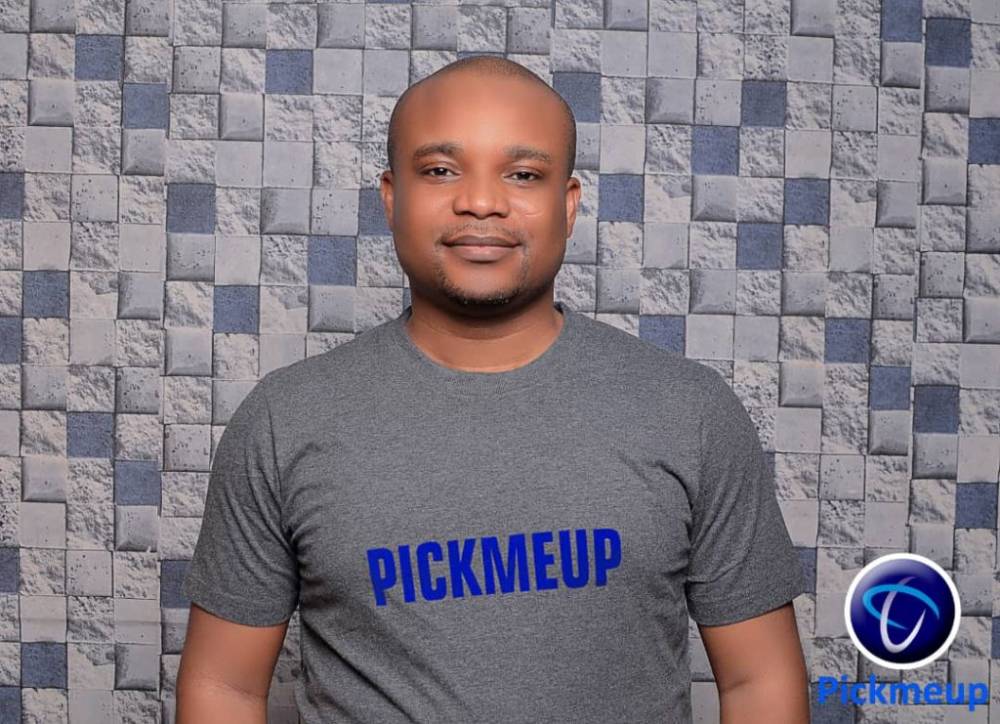
PickMeUp Is Preparing To Compete In Lagos Against Bolt And Uber With New Funding And Strategies
PickMeUp is preparing to compete in Lagos against Bolt and Uber with new funding and strategies
Three years after Uber began operations in Nigeria and a year after Bolt entered the ride-hailing space, a local competitor entered the fray quietly. Typically, technology companies establishing branches in Nigeria begin with Lagos state, but Michael Okaredje had other plans.
Okaredje, a native of Warri in Delta state, had observed the difficulties that residents faced when it came to getting around and dealing with drivers.
His personal observations combined with a thorough understanding of the market landscape and consumer behavior resulted in the conception of Pickmeup in November 2017 and the app's eventual launch in January 2019.
Okaredje stated in a virtual chat that he founded Pickmeup to address the lack of ride-hailing services in his hometown of Warri, as well as the large unserviced market in Nigeria and Africa as a whole.
The startup utilizes technology to connect people with drivers when they require transportation. Similar to other popular ride-hailing apps, Pick Me Up enables users to track their trips and make payments directly from the app.
The ride-hailing startup has expanded beyond Warri to Asaba, Edo State, Rivers State, Akwa Ibom, and Imo states.
When the covid-19 pandemic struck in 2020, the branches were closed and will reopen in August of this year.
Lagos is not the location for product testing
Although the startup boycotted Lagos and several other states considered "ride-hailing hotspots" by competitors, this move clearly benefited Pickmeup. As it expanded from Warri to other parts of the SouthEast, the ride-hailing company gained more drivers and customers in these locations.
Bolt expanded to Warri and Asaba in December. However, the local competition it encountered on the ground already possessed a sizable portion of the market and possessed a stronger relationship with consumers.
“Even though Bolt came to Warri,” Okaredje explained, “they are currently trailing us.”
Pickmeup's years of gaining traction in the southeast have allowed it to validate its model and product. Additionally, they have shielded the startup from the majority of the competition headwinds created by Bolt and Uber, allowing it to grow in 'peace'.
However, with an upcoming Lagos expansion, it is looking to take on the competition.
Local players in Lagos cannot withstand the competition
MyKab, Bolt, inDriver, Uber, Lagos Ride, Drop, and Pamdrive are all based in Lagos. Apart from inDriver, Bolt, and Uber, the remaining ride-hailing startups are still relatively new.
For Pickmeup's Okaredje, the local competition is sparse, and as a result, the company's focus will be more on the big two.
With over 50,000 user downloads and over 10,000 driver downloads, Pickmeup easily outpaces local competition not only in Lagos State, but throughout Nigeria.
However, there are three significant factors that could jeopardize its Lagos expansion plans. The first is drivers' willingness to join the platform, the second is customers' willingness to use the platform, and the third is capital.
The startup is bullish on its plans and is already active on all three fronts. Recall that the Professional E-Hailing Drivers and Private Owners Association (PEDPA) announced approximately four weeks ago that it had signed an exclusive deal with two local ride-hailing startups in Lagos, MyKab and Active Rides.
However, Okaredje asserts that the exclusive deal is more of a nomination by PEDPA, and Pickmeup is already in discussions with the major Lagos driver associations to increase registration.
To begin, the platform will charge drivers a flat fee of 10% on all rides. When compared to Bolt's 15% to 20% commission and Uber's 25% commission on all rides, Pickmeup's commission means that drivers keep a higher percentage of the fare.
To entice Lagosians, Okaredje says the startup will charge 5% less than the competition when it eventually launches. This, combined with occasional discounts, is expected to make using Pickmeup a more enticing proposition for commuters.
Funding is a significant reason why local competition has struggled to gain traction. It is also one of the pillars upon which Uber and Bolt are built in Nigeria. As a result, any worthy competitor must also ensure that sufficient cash is available to fund operations.
Pickmeup is on the verge of closing a $1.2 million round that will position the company to compete more favorably in Lagos and other parts of the country. The funds will be used to reclaim market share in states where it was forced to suspend operations due to covid-19. One of the company's long-term goals is to expand into tricycle hailing and to navigate the Super App lane that Opay attempted but was unable to tow.
A lot of planning and setup is currently taking place in Lagos for the two-year-old startup. However, given its founder's willingness to experiment and its track record thus far, 2021 may be remembered as a year of strong growth for the ride-hailing company.
Courses and Certification
Google Maps Course and Certificate
Engineering Geology Course and Certificate

